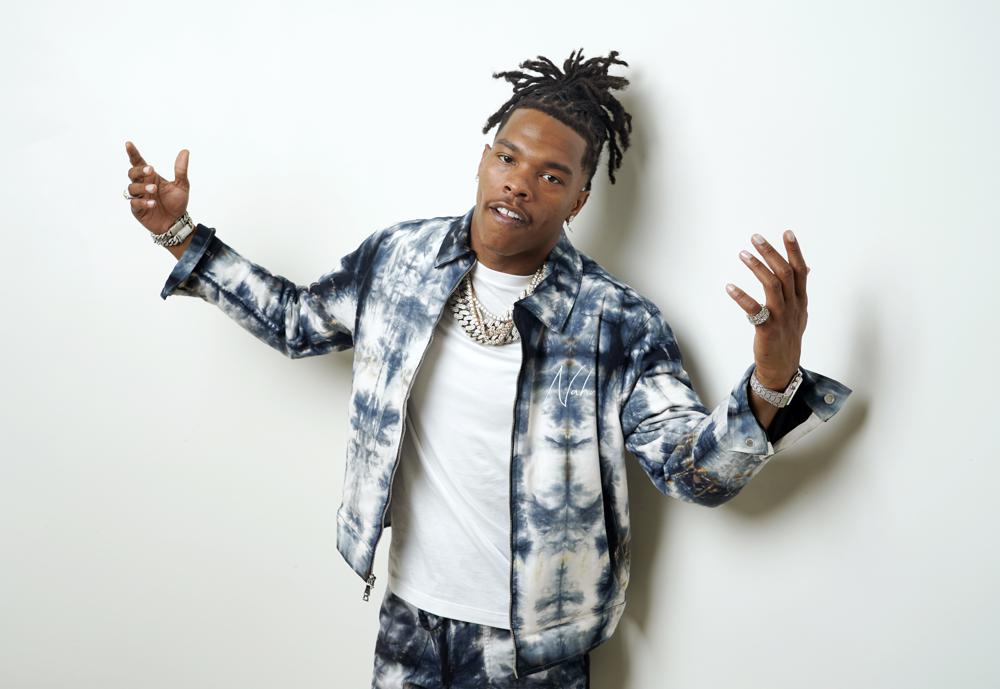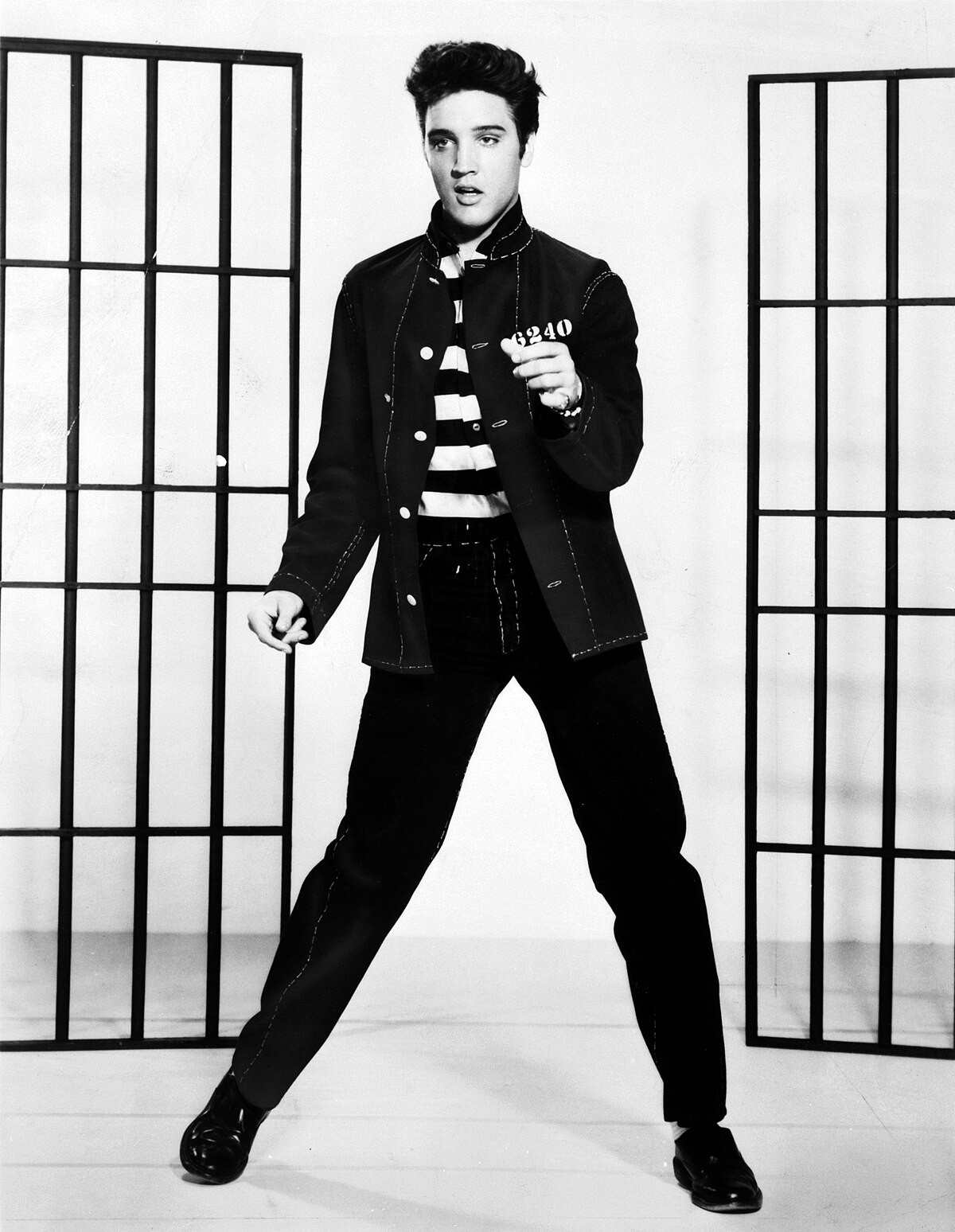
While Lil Baby’s new album blares loudly in the living room, the Atlanta-born rapper stands in the kitchen of his $20 million Bel Air home singing to his son, who dances along on FaceTime.
For Lil Baby, living in one of the most exclusive neighborhoods in the U.S. would have been unfathomable several years ago. He was released in 2016 after being incarcerated on a drug charge and had no intention of starting a rap career until Quality Control founders Kevin “Coach K” Lee and Pierre “P” Thomas saw tremendous potential.
“I knew Baby had a hustler’s spirit,” Thomas says. “All he had to do was transfer his energy from whatever he was doing to the music. He’s got that hustler’s mentality of the first one getting up and last one going to sleep. He grinds nonstop. I just knew if he transferred all that energy, he was going to grind all the way to the top.” Lil Baby, 27, initially wasn’t hard pressed to rap. But once he made it a priority, he rose to remarkable success. He won over listeners through his infectious singles like “Drip Too Hard,” “We Paid” and “Yes Indeed” with Drake. He’s worked with some of music’s best including Future, Nicki Minaj and Lil Wayne. Earlier this year, he won a Grammy in the best melodic rap performance category for Kanye West’s “Hurricane,” which also featured The Weeknd.
Lil Baby, 27, initially wasn’t hard pressed to rap. But once he made it a priority, he rose to remarkable success. He won over listeners through his infectious singles like “Drip Too Hard,” “We Paid” and “Yes Indeed” with Drake. He’s worked with some of music’s best including Future, Nicki Minaj and Lil Wayne. Earlier this year, he won a Grammy in the best melodic rap performance category for Kanye West’s “Hurricane,” which also featured The Weeknd.
In a recent interview with The Associated Press, Lil Baby opened up about decriminalizing rap lyrics, his friends Young Thug and Gunna who are currently locked up in a RICO criminal case and his third studio album “It’s Only Me,” which releases Friday.
Remarks have been edited for clarity and brevity.
AP: You’ve overcome being a high school dropout and bounced back from serving time in prison. How does it feel now to be successful?
LIL BABY: When I look at everything I had to endure and the process, I think about when I was just sitting in a prison cell to now I’m living in a pad in California. I feel like anything can happen. Anything is possible. If you believe, you can achieve.
AP: When did you realize you was good with formulating words together?
LIL BABY: Language arts was one of my favorite classes. I could imagine and really write a story about whatever. It could be real or not real. From second to third grade, I always been into writing a good story. Once I got on Instagram, I started realizing that the caption was more important than the picture. Like if you got the right caption, it’ll go viral. The caption has to be hard as my picture.
AP: Your protest song “The Bigger Picture” was a big hit at the Grammys last year. Will you do more racial disparity-type topics in your new music?
LIL BABY: I feel like that’s something I do in my songs anyway. That was a time where so much was going on. I think it got reciprocated like that. But that’s a song that could’ve been on my album right now — without this going on. That’s how I rap already.
AP: Your new album has 23 tracks. With that good amount of songs, did you think about breaking it up into a double album?
LIL BABY: I could’ve put 15 songs out and just added seven more songs then put out another album. I could put out two albums in no time. But I haven’t put nothing out in two years. It’s almost really going on three (years). ... I’m not going to drop a deluxe.
AP: Your friends Young Thug and Gunna have been jailed since May in a criminal racketeering case. How have you been dealing with that?
LIL BABY: It honestly kind of (expletive) me up, like on a day-to-day. I try my best not to think of it. I haven’t been talking to Gunna as much, but I talk to Thug often. It’s one of those things I try to keep off my mind. If I think about it too much, I get deep into it. It’s the fact that I know the situation of where we are and what we’ve overcome. I know them personally. I know what they’re doing and what they are not to a certain extent. To know the picture that they are painting isn’t really them. It’s really scary. I’m in that same position. They could be painting the same picture to me. I know for a fact that’s not what it is. But I’m also seeing people in jail when I know it’s not what it is. It kind of (expletive) with your insanity a little bit.
AP: Since you communicate with Thug the most, what advice have you given him?
LIL BABY: I tell him to read. This is a time when we got to do what we to get through this situation. Just read. Stack up on your knowledge. It’s nothing else to do. Get you some real good books. Let that be the reason.
AP: Are you more conscious of your lyrics now?
LIL BABY: Yep, by default. It automatically makes you conscious. I can say something crazy that I never did. I know that. But with everything going on, I ain’t going to say that. I’m scared for someone who would try to make something that’s not. I try my best. We’re rappers. We’re used to saying a lot of stuff that’s not true, that didn’t happen. It’s art. It’s your imagination. You can go as far as you want to take it. But now, I have to be very mindful, because I know as much as people who are listening to what I’m saying is a critic.
AP: In California, Gov. Gavin Newsom recently signed the decriminalizing artistic expression act. How do you feel about it?
LIL BABY: It’s a major impact. But I think it’s a catch with this lyric thing. It’s dead (expletive) wrong to try to use your lyrics and convict you of something you’re just saying. It’s also (expletives) wrong for putting stuff in your music that you’re actually doing. It’s a strong battle in that right now.
As a rapper and a person, I’m leaning more towards decriminalizing lyrics, so it’s doesn’t get brought up in court. But I ain’t advertising or applauding the people who are actually going out here on nonsense and putting it in their songs. You got to get it how you live, but it’s a finesse. You can finesse it into the music. That’s the art of it. That makes it a craft. You can go out there and do something — good, bad, wrong. And then be able to come back and make it into a song. Make art out of it. You don’t have to be direct and say exactly what happened. You fabricate it. It’s art. You give it how you imagine.
AP: Anything you want to do outside of rap?
LIL BABY: I’ve been telling my team to put something together for a cartoon. My baby mother and her friends, they got like a TV show on BET, “The Impact: Atlanta.” I co-produce that. I’m into stuff. My momma is trying to come up with a show about the pressure that rap moms have to go through — to be a parent of someone in hip-hop. I got my team trying to come up with a show around that. I got a couple of ideas. I’ll be around.
AP: You were singing to your son over FaceTime. How do you juggle being a rap star and father of two boys?
LIL BABY: Everything is great, except me being in this position, I just don’t have enough time as I want. I want to be there, but I want to build this legacy. It (expletive) with my time with them. That’s the only problem I have in life: Finding time with my kids. I can say that I don’t want to go to work and have all the time in the world for them. But that won’t lead to the life I want to build for them or the life I want for myself.
AP: What kind of life do you want for them?
LIL BABY: I inspire my kids to be business owners and legacy holders. I’m a first generation millionaire. I’m trying to keep it going for as long as possible. So my children are in a big situation. They hold the fire, really. I created it as the first generation. I’m going to make sure I pass it on. They have to make sure they pass it onto the next generation and so forth.

Elvis Presley's Graceland Mansion, a popular tourist attraction and the singer's final resting place, is at the center of a court fight as it appears to be headed for a foreclosure auction later this week. But Elvis' granddaughter, actor Riley Keough, is fighting back with a lawsuit that alleges fraud.
According to an apparent foreclosure notice, the estate — which was built in 1939 — is set to be auctioned off at the Shelby County courthouse in Memphis, Tennessee, on Thursday.
The foreclosure is allegedly occurring because Elvis' daughter, Lisa Marie Presley, used Graceland as collateral to secure a $3.8 million loan from a company called Naussany Investments and Private Lending in 2018, but she failed to pay it off before she died last year.
Keough, who starred in last year's hit show "Daisy Jones and the Six," is the heir to the estate.
In a lawsuit, Keough claims Naussany Investments "appears to be a false entity created for the purpose" of defrauding her family. The lawsuit also says Keough's mother "never borrowed money" from the company, or gave them a deed of trust to Graceland, and further alleges that documents claiming otherwise "are forgeries."
The lawsuit includes a sworn affidavit from the notary public whose name appears on the deed of trust, saying in part, "I did not notarize this document."
A judge will consider those allegations in a hearing Wednesday, after an attorney for Keough says a temporary restraining order was granted Monday, according to CBS affiliate in Memphis WREG.
"You want to keep the status quo and make sure nothing changes — make sure nobody is harmed," said Jessica Levinson, a CBS News legal contributor. "And the biggest harm would come from an illegitimate sale of Graceland."
CBS News reached out to two people who appeared to be affiliated with the investment and lending company, and they said they would send our questions to their attorneys.
Elvis Presley Enterprises manages Graceland and said in a statement that the foreclosure claims are "fraudulent." In a social media post, Presley's ex-wife, Priscilla Presley, uploaded a photo of Graceland that was captioned, "It's a scam!"
In 1957, at the age of 22, Elvis bought Graceland for $102,500. At the time he purchased it, the mansion was 10,266 square feet, and Elvis bought 13.8 acres of the farm around the house. Today, the Graceland mansion is 17,552 square feet.
Graceland, where Elvis died in 1977, was named to the American National Register of Historic Places in 1991. Over 600,000 people visit Graceland — named after Grace, an aunt of one of the original owners — each year.